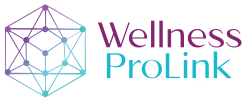Enhancing Brain Focus Through Biohacking: Unlock Your Mental Potential
In today’s fast-paced world, maintaining focus and concentration is crucial for success in various aspects of life. Whether you’re a student preparing for exams, a professional aiming for peak productivity, or an individual seeking personal growth, having a sharp and focused mind can significantly impact your performance. Fortunately, with the emerging field of biohacking, we now have a range of effective techniques and strategies to enhance brain focus. In this article, we will explore biohacking tips and create a comprehensive guide to help you unlock your mental potential and achieve heightened focus.
Table of Contents:
- Introduction
- Understanding Brain Focus
- Biohacking Tips for Improved Focus 3.1 Nourish Your Brain with Proper Nutrition 3.2 Prioritize Sleep and Rest 3.3 Practice Meditation and Mindfulness 3.4 Utilize Cognitive Enhancers 3.5 Engage in Regular Physical Exercise 3.6 Optimize Your Environment
- Table: Do’s and Don’ts for Brain Focus
- FAQ Section
- Conclusion
1. Understanding Brain Focus:
Before diving into the world of biohacking, it is essential to understand how brain focus works. Our ability to concentrate and maintain attention is influenced by various factors, including neurotransmitters, neural pathways, and external stimuli. By optimizing these factors, we can improve our brain’s focus and achieve a state of heightened cognitive performance.
2. Biohacking Tips for Improved Focus:
2.1 Nourish Your Brain with Proper Nutrition: The food we consume plays a crucial role in brain function. Incorporate brain-boosting foods into your diet, such as fatty fish, berries, avocados, dark chocolate, and green leafy vegetables. Additionally, consider adding supplements like omega-3 fatty acids, B vitamins, and antioxidants to support cognitive function.
2.2 Prioritize Sleep and Rest: Adequate sleep is vital for optimal brain function. Create a consistent sleep schedule and ensure you are getting the recommended 7-9 hours of quality sleep each night. Additionally, incorporate regular breaks and relaxation techniques into your daily routine to recharge your mind and prevent mental fatigue.
2.3 Practice Meditation and Mindfulness: Engaging in mindfulness and meditation exercises can help improve focus and attention span. Set aside dedicated time for meditation each day, even if it’s just a few minutes. Mindfulness practices, such as deep breathing exercises or body scans, can also help center your mind and enhance concentration.
2.4 Utilize Cognitive Enhancers: Natural cognitive enhancers, known as nootropics, can provide a boost to brain focus. Some popular options include caffeine, L-theanine, ginkgo biloba, and Bacopa monnieri. However, it is essential to research and consult with a healthcare professional before incorporating any new supplements into your routine.
2.5 Engage in Regular Physical Exercise: Physical exercise not only benefits your body but also has a profound impact on cognitive function. Regular aerobic exercise increases blood flow to the brain, promoting the growth of new neurons and enhancing focus. Aim for at least 30 minutes of moderate-intensity exercise most days of the week.
2.6 Optimize Your Environment: Create a workspace or study area that is free from distractions and clutter. Minimize external stimuli, such as noise or visual disturbances, and ensure proper lighting for optimal focus. Consider incorporating elements like calming music or ambient noise to create a conducive environment for concentration.
3. Table: Do’s and Don’ts for Brain Focus:
| DOs | DON’Ts |
|---|---|
| Prioritize sleep and establish a consistent schedule | Neglect sleep or pull all-nighters |
| Eat brain-boosting foods and take necessary supplements | Rely solely on unhealthy processed foods |
| Engage in meditation and mindfulness practices | Allow stress and anxiety to overwhelm your mind |
| Incorporate regular exercise into your routine | Lead a sedentary lifestyle |
| Create a distraction-free and organized workspace | Work in a cluttered and chaotic environment |
4. FAQ Section:
Q1: Are there any quick-fix solutions for instant brain focus? A: While there are no magic pills for instant focus, certain techniques like deep breathing exercises or listening to instrumental music can provide temporary boosts. However, long-term focus enhancement requires consistent practice and lifestyle changes.
Q2: Can biohacking techniques improve focus in individuals with attention disorders? A: Biohacking techniques can complement existing treatments for attention disorders. However, it is essential to consult with a healthcare professional to develop a comprehensive approach tailored to individual needs.
Q3: Can biohacking improve focus in older adults? A: Absolutely! Biohacking techniques, such as exercise, proper nutrition, and cognitive training, can enhance focus and cognitive abilities in older adults. It’s never too late to start biohacking your brain.
Conclusion:
Incorporating biohacking techniques into your lifestyle can be a game-changer when it comes to improving brain focus. By implementing strategies like proper nutrition, quality sleep, mindfulness practices, and optimizing your environment, you can unlock your mental potential and achieve a state of enhanced cognitive performance. Remember, biohacking is a journey that requires consistency and commitment, but the rewards are well worth the effort. So, start implementing these tips today and experience the transformative power of a focused mind.
Follow usReferences:
Fernandes BS, Berk M, Turck CW, Steiner J, Gonçalves CA. Decreased peripheral brain-derived neurotrophic factor levels are a biomarker of disease activity in major psychiatric disorders: a comparative meta-analysis. Mol Psychiatry. 2014 Jan;19(7):749-51. doi: 10.1038/mp.2013.82. Epub 2013 Jul 9. PMID: 23835464.
Killgore WD. Effects of sleep deprivation on cognition. Prog Brain Res. 2010;185:105-29. doi: 10.1016/B978-0-444-53702-7.00007-5. PMID: 21075236.
Tang YY, Hölzel BK, Posner MI. The neuroscience of mindfulness meditation. Nat Rev Neurosci. 2015 Apr;16(4):213-25. doi: 10.1038/nrn3916. PMID: 25783612.
Owen GN, Parnell H, De Bruin EA, Rycroft JA. The combined effects of L-theanine and caffeine on cognitive performance and mood. Nutr Neurosci. 2008 Aug;11(4):193-8. doi: 10.1179/147683008X301513. PMID: 18681988.
Hillman CH, Erickson KI, Kramer AF. Be smart, exercise your heart: exercise effects on brain and cognition. Nat Rev Neurosci. 2008 Jan;9(1):58-65. doi: 10.1038/nrn2298. PMID: 18094706.

